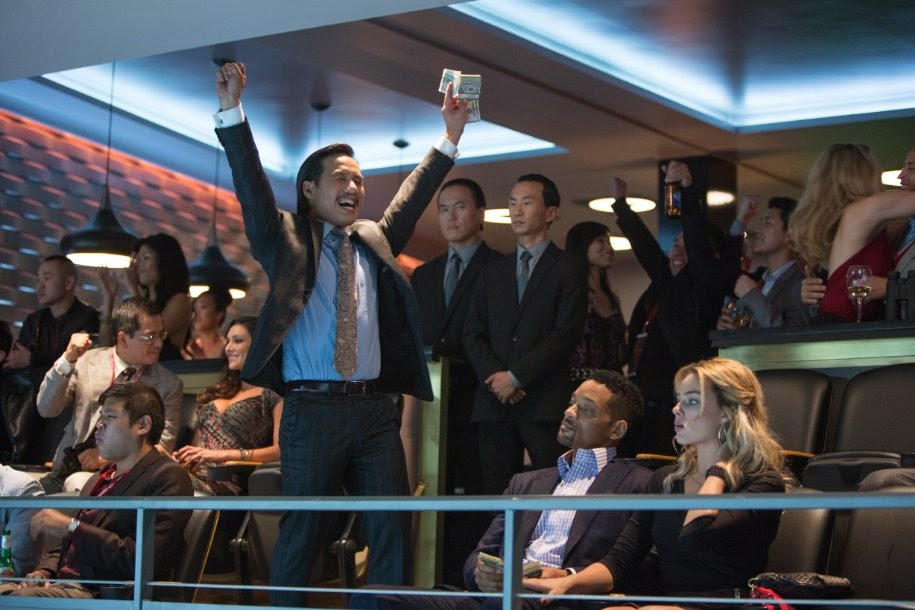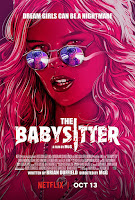BlacKkKlansman
BlacKkKlansman
Directed by: Spike Lee
Written by: Spike Lee, David Rabinowitz,
Charlie Wachtel & Kevin Willmott, based on the
book by Ron Stallworth
Starring: John David Washington, Adam Driver,
Topher Grace, Laura Harrier & Robert John Burke
Rating: 14A
Release Date: August 10th, 2018
 |
| Adam Driver & John David Washington become 'Ron Stallworth' in BlacKkKlansman Image Source |
BlacKkKlansman follows the real life story of Colorado Police officer Ron Stallworth. As the first African-American police officer in Colorado, Stallworth has his work cut out for him, and as a rookie, he has to work twice as hard as everyone else. That's when Stallworth has an idea - why not use his 'Otherness' to work undercover? At first he's tasked with infiltrating a local chapter of the Black Panthers, but upon discovering they're pretty harmless, Stallworth stumbles upon another lead. An ad in the local paper, shows a call for locals to join the KKK. Ron, who seems to be frustrated with dead ends and a stagnant mood around the office calls the number. Putting on his best 'white-voice' Ron, (using his real name), asks for more information, and begins a descent into racially charged madness. Along with his white partner, Flip Zimmerman, (Adam Driver), Stallworth begins an undercover operation to look into the KKK. Stallworth handles the phone calls, Zimmerman handles the face to face operations. What follows is truly stranger than fiction.
With a real life tale and an exploration of linguistics, semantics, code-switching , and the idiocy that is the face of racism, all of the elements of Stallworth's story could come together to make a tasty stew of ridiculousness and hilarity. And yes, there are many funny events in the film, and one scene involving Stallworth talking to KKK leader David Duke, (Topher Grace), had me rolling. But at it's core, BlacKkKlansman is a deeply unnerving and tragic film. Like many have said of Hitler, (the ultimate perpetrator of idiocy and racist beliefs), laughing at fools is good on one hand, but all threats and idiotic thinking must eventually be taken seriously; bad ideas are dangerous. In an interview with The Atlantic, journalist and Hitlerland author Andrew Nagorski states:
"...you had Americans meeting Hitler and saying, "This guy is a clown. He's like a caricature of himself." And a lot of them went through this whole litany about how even if Hitler got into a position of power, other German politicians would somehow be able to control him. A lot of German politicians believed this themselves. Of course, everyone began to reassess that very quickly after he took power. But some of the Americans were much more prescient -- for instance, Edgar Mowrer, the Chicago Daily News correspondent, kept frantically trying to warn readers and the world, "What he's saying about the Jews is serious. Don't underestimate him."
- - Gritz, Jennie Rothenberg. “Early Warnings: How American Journalists Reported the Rise of Hitler.” The Atlantic, Atlantic Media Company, 13 Mar. 2012
What Nagorski is ultimately saying, (and I think Lee is in the film), is that beliefs, as stupid as they may be, must always be taken seriously. Hitler was laughed at, just like Putin or Trump are currently laughed at, but their actions have real world consequences. Although it takes place in the 1970's, some of the talking points of BlacKkKlansman could be from today. For example, when speaking to his sergeant, Stallworth says a man who is secretly in the KKK or holds it's beliefs could never make it into the white house; to which his white sergeant tells him to 'wake up.'
Ultimately, there is too much to talk about in Lee's film for one review. There's so much in terms of cinematic references, film making techniques, linguistics, politics, race, and much, much more. One could write a book on all of the ideas discussed within BlacKkKlansman, and yet, Lee somehow manages to balance all of it. Perfectly. Humour, violence, love, hate and tragedy all have equal billing. It's a testament to both Lee's talent, the talent of the cast, and the fact the film portrays a true story that the film works. Everything is brilliant, (Lee's inventive camera work is on full display here), but the acting is what really hammers the story home.
John David Washington, son of Denzel, (yes, that Denzel), has the almost insurmountable task ahead of him when the film begins. He's the lead role in a period piece, under the direction of one of the most famous directors from the 90's who helped his father play one of his most iconic roles in Malcolm X. On top of that, there will always be whispers of nepotism when a family member is in the entertainment industry. Somehow, though, Washington achieves the impossible. He disappears into his role as Stallworth, anchors the film in reality, and pulls off a performance that may be better than anything his father has ever done. Maybe it's because he had a football career before acting, or that he seemed to stay out of the spotlight until he was an adult; whatever it was that made John David Washington so good, it worked. His performance in BlacKkKlansman is challenging, multifaceted and complex. He absolutely nails it, and I wouldn't be surprised if he walks home with a best actor Oscar come awards season. Adam Driver, as a man with Jewish ancestry he never explored until it becomes an issue in the film's investigation, is brilliant. Rounding out the edges, Topher Grace continues to prove he's more than just That 70's Show with his reptilian performance as David Duke, a man filled with impotent rage. Alec Baldwin, too, with a performance referencing racist propaganda films in the Jim Crow era, rivals his short cameo/performance in Glengarry Glen Ross. This is a masterful film with masters of their craft doing some of their best work.
Spike Lee, remains one of the most interesting directors at work today. Be it the story, the fact Jordan Peele, (of Get Out and Key and Peele fame), produced the film, or that Lee found a story that perfectly matched his vision - he truly has made his best film to date. Sanding down some of the edges that hindered his other films, (the powerful 'rant' scene in 25th Hour is great in context, but would put off most people who happen across it; out of context it just comes off as cruel and racist), but keeping the powerful anger that has made his work stand out, Lee never misses his mark, and doesn't pull any punches. His decision to bookend the film, beginning with old racist cinema, (yes, Gone With the Wind really is that racist), and ending modern news footage of white pride protesters killing innocent people is a bold move that anchors the film in reality, and hammers home BlacKkKlansman's message in a deeply effective way.
Overall, BlacKkKlansman is a complex, deep and rich film, that seamlessly moves from comedy to deep tragedy, from love scenes to uncomfortably relevant conversations. Lee, one of the best living directors, (or at least most interesting), combines all of the elements that have made him so interesting, with a brilliant cast and a stranger-than-fiction story to create not only the best film of the year, but likely the most important film of the decade. BlacKkKlansman is a masterpiece that will be seen as a watershed moment in Lee's career and cinema for years to come. Bravo.
GRANT'S RATING: 5/5 STARS
Washington and Driver discuss their differences and similarities in
this BlacKkKlansman clip: "Undercover"



Comments